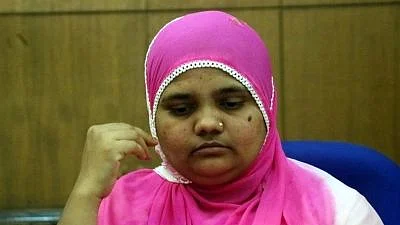The Supreme Court on Friday, 9 September, directed the Gujarat government to place all relevant documents in the Bilkis Bano case, including the remission order given to the convicts, reported Live Law.
The court was hearing the petitions filed by Trinamool Congress (TMC) MP Mahua Moitra and others, challenging the remission order by the Gujarat government, which released the convicts in the Bilkis Bano case.
The state has been given two weeks' time to place all relevant documents on record.
The bench comprising of Justices Ajay Rastogi and BV Nagarathna also issued notice to Advocate Rishi Malhotra, who was appearing for one of the convicts in the case, the report added.
The court further directed Malhotra to take instructions if he could appear for the other convicts as well.
The petitions in the apex court are against the Gujarat government's highly controversial 15 August move to release the 11 convicts who had gang-raped Bano and murdered 14 of her family members, including her three-year-old daughter, during the 2002 Gujarat riots.
On 25 August, the court issued notice to the Gujarat government in one of the petitions.
Bilkis Bano Case
The convicted men had been sentenced to life imprisonment by a Mumbai court in 2008 for gang-raping Bano and killing seven members of her family, including her three-year-old daughter, amid the riots. The sentence was also upheld by the Bombay High Court.
After serving 15 years of his sentence, Radheshyam Shah approached the Supreme Court seeking remission of the sentence and his premature release.
The court then passed on the matter to the Gujarat government, which decided to release them under an outdated remission policy. The government had taken advice from an advisory committee, replete with links to the Bharatiya Janata Party (BJP), which backed their release and unanimously pushed for their remission.
The 10-member committee comprised two current BJP legislators and three other members of the saffron party.
The convicts were felicitated upon their release from the Godhra sub-jail, with locals touching their feet, offering them sweets, and applying tilak on their foreheads.
